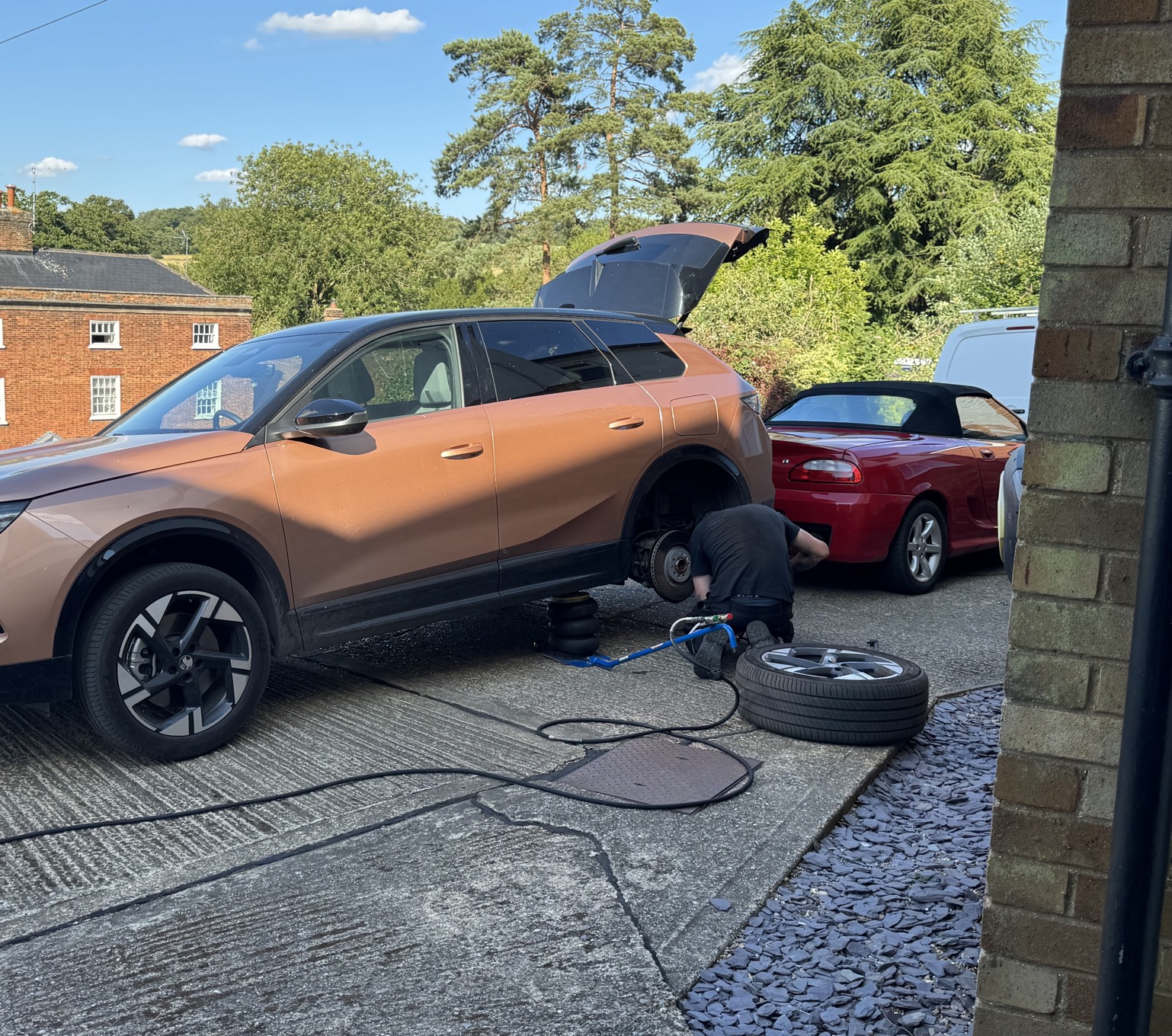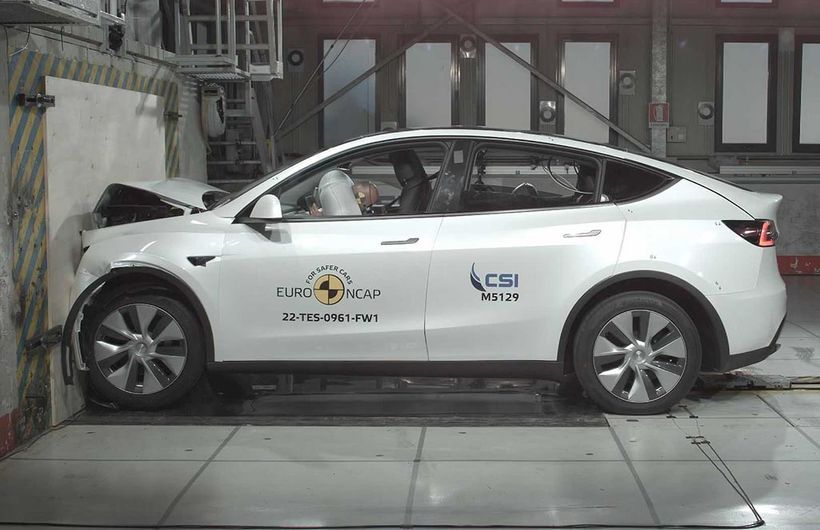Are you worried that fixing an electric car could be a shock to your wallet? Does the thought of finding an EV mechanic keep you awake at night? We look at what’s involved in EV maintenance, from everyday servicing to big battery fixes and accident repairs.
Are electric cars more expensive to repair than petrol or diesel cars?
In most cases, no — electric cars are actually much cheaper to maintain. That’s because EVs are basically simple, with a big battery and a motor rather than a lump of metal trying to control thousands of explosions every minute. So there are far fewer moving parts, no oil to change, no clutch or exhaust system, and no timing belt waiting to snap. Brakes also last longer thanks to regenerative braking, which uses the motor as a generator. This slows the car down and feeds energy back into the battery.
However, if a major repair is needed — such as to the battery or power electronics — costs can be higher if compared to a smaller, simple petrol or diesel engine. But these failures are rare – and far less frequent than in an engine.
As EVs have high tech components, not every workshop has the right tools or training yet. The numbers are growing all the time.
Are mechanical repairs on EVs simpler?
Absolutely. The mechanical side of an electric car is pretty simple. You’ll still need to look after suspension, tyres, brakes and fluids, but the complex internal combustion engine is gone — along with hundreds of potential failure points. Modern engines with their turbos, emissions equipment and multi speed gearboxes are notoriously troublesome – especially after a few years. Just Google ‘wet belt issues’ if you want an example.
Servicing costs for EVs are usually lower too, as the regular maintenance schedule usually involves nothing more than a check over of the levels, software update and cabin filter change – all of which would also be needed on a petrol car on top of oil changes etc.

The only challenge can be finding a garage with qualified EV technicians, though this is improving rapidly. Most main dealers and an increasing number of independent garages have the certificates to work safely on high-voltage systems. The Government has also committed to develop the skills needed for the transition through Skills Bootcamps, Electrification Skills Boost, and apprenticeships.
Are accident repairs more complicated on electric cars?
They can be, yes, but that is usually because of safety procedures around the high voltage components. Only certified technicians are allowed to isolate and make safe the system before work begins, which means not every bodyshop can handle the more serious repairs on EVs yet. This only applies to large structural repairs though – a scrape on the bumper will be handled in the same way as on any other car.
Some insurers have been cautious though, as in the past, EVs were written off for minor damage simply because the battery needed to be inspected as that would take time and extra money. But that’s changing quickly. More EV-approved repair centres are opening across the UK, and brands like Tesla, Nissan, and Hyundai all have approved repair networks who can handle their electric vehicles – partly because it helps keep insurance costs down.
What about battery repairs?
Battery issues are actually very uncommon. The manufacturer CATL says its cell have a one in a billion fault rate.
Most manufacturers provide eight-year (or 100,000-mile) warranties, and modern EV batteries are proving remarkably durable. Real-world data suggests that battery degradation is slow — often less than 10% over many years of driving.
If repairs are needed, they often involve replacing a single module rather than the whole pack, which keeps costs down. According to specialists Cleevely, some manufacturers are better than others at supplying individual components – Nissan and BMW get gold stars for their willingness to help repair rather than replace.
The main issues are caused by abuse rather than a manufacturing fault, with water ingress from floods being an issue on some models, such as the MG ZS.
Is it easy to find someone who can repair an EV?
For routine maintenance and minor repairs you’ll be able to use any garage, but you might find it slightly tricker to find someone who is happy to do bigger technical stuff. While the car (and its battery) are in warranty you are likely to use the official dealer network as your first port of call. Once the cover is expired you are usually going to find it cheaper to go to an independent with knowledge of EVs.
Finding one is getting easier by the month. Most dealerships are already fully equipped and independent garages are catching up, with dedicated EV bays and safety training becoming standard. Look for one which is accredited by the Hybrid & Electric Vehicle Repair Alliance at HEVRA.org.uk – there are more than 300 garages in the network.

Should I be worried about EV repair costs?
In short, no. Routine maintenance is cheaper, breakdowns are rare, and major component failures are extremely unusual. While repairs to the battery or electrical systems can be pricey, they’re infrequent and often less than a major component failure in a petrol or diesel car. As EV ownership grows, costs are coming down further.
As always though, you should be careful if you are buying a used electric car. Make sure it has been properly looked – especially if it has been involved in an accident. Also look for a car which has an independent battery condition report – such as the ones offered by our approved partners.
Get the right car, look after it properly and it will look after you too.
 Check any accident repairs have been done properly
Check any accident repairs have been done properly 











